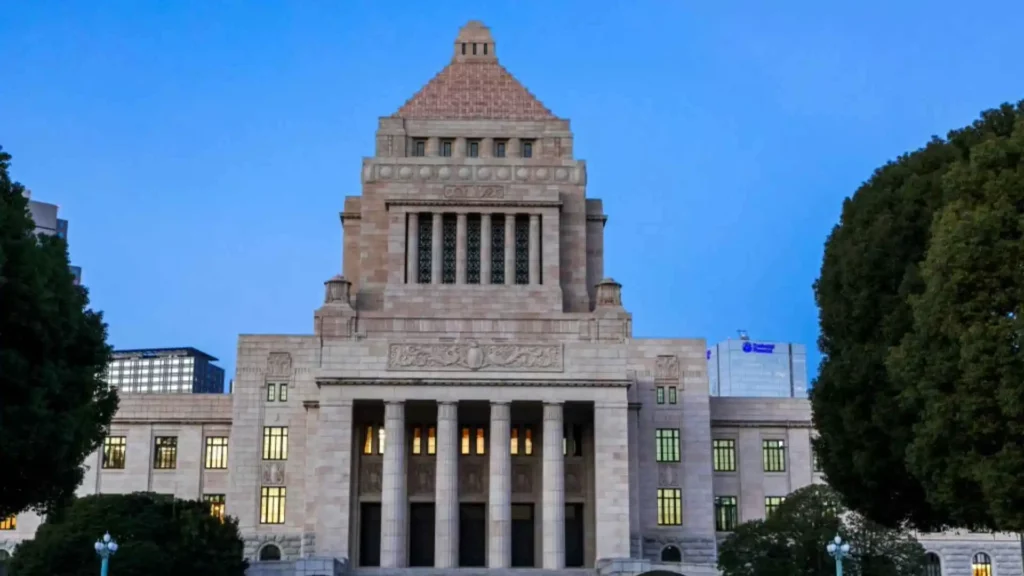Japan Web3 White Paper: Government Eyes DAO Support to Boost Sector

The Japanese government is considering ways to boost the Web3 sector. Photo by: Dukas/Universal Images Group via Getty Images.
Key Takeaways
- The Japanese government has published a white exploring how it can support the country’s Web3 sector.
- One of the ideas floated is to encourage DAOs to incorporate businesses in the country.
- DAOs typically favor jurisdictions like Switzerland, where they can establish limited liability companies to interact with legal systems.
Decentralized autonomous organizations (DAOs) are, by nature, self-governing. Their relations with national administrations are therefore complex and can be fraught with difficulty.
In Japan, however, a recent government white paper argues that establishing a clear legal framework for DAOs could provide a boost to the country’s emerging Web3 sector.
The Uncertain Legal Status of Decentralized Organizations
One of the most important issues surrounding the legal status of DAOs that Japan hopes to address is the question of liability.
Namely, should a DAO be considered a loose collection of individuals, each one potentially culpable for the organization’s actions? Or are they more like a Limited Liability Company (LLC), which can itself be held responsible for actions without implicating individual members?
In the US, the Securities and Exchange Commission (SEC) successfully argued in court that members of OokiDAO weren’t protected from individual liability. The judge determined that the DAO was not operating as any specific legal entity, but as an unincorporated association of individuals.
Yet some states have sought to create a framework for decentralized organizations to register as legal entities. In what could provide useful models for Japan, Tennessee, Vermont, and Wyoming have all passed laws that accommodate for decentralized organizations under existing LLC regulations.
Japan Considers Measures to Encourage DAO Formation
In its recent policy paper, the Japanese government said “there is a need to resolve practical issues when establishing and operating a limited liability company type DAO.” It also acknowledged that there is significant uncertainty surrounding their capacity to form other types of legal entities that inhibit DAO formation in the country.
However, the white paper doesn’t mention DAO laws in the US. Instead, it points to a country that is home to some of the most important decentralized organizations in the world: Switzerland.
Why DAOs Choose Switzerland
The first-ever experiment with on-chain decentralized governance, known simply as “The DAO,” was launched in 2016 as a kind of investor-owned venture capital fund for Ethereum.
The founders of The DAO established a Swiss LLC – DAO.Link – that would be able to open bank accounts, sign business contracts and generally act as an interface with real-world legal structures. All the while, individual DAO members directed the company’s actions through on-chain votes.
According to early Ethereum adopter Simon Jentzsch, who helped establish the entity, The DAO chose to set up its LLC in Switzerland because the country’s commercial law let firms “take money from an unknown source as long as you know where it’s going.”
While the country doesn’t have any dedicated legislation dealing with DAOs, its permissive regulatory environment has helped cement it as one of the top locations for decentralized organizations to register as legal entities ever since.
Today, foundations associated with Ethereum, Cardano, Solana, Polkadot and other blockchain ecosystems are all incorporated as non-profit companies in Zug, which has become the global DAO capital.
In turn, the city has emerged as a major hub of Web3 innovation, often referred to as “crypto valley” for the sheer number of blockchain startups that can be found there.
The Economic Benefits of DAOs
Alongside the Marshall Islands, the Japanese white paper explicitly cites Switzerland as an important nexus for otherwise borderless DAOs, arguing that “it is necessary to ensure interoperability with overseas DAO legislation.”
As the case of Zug demonstrates, DAOs can help stimulate international investment by channeling wealth that might otherwise remain locked in virtual space into a physically located business.
From rent to legal fees, once they incorporate a business, decentralized organizations incur many of the same costs as traditional companies – money that gets channeled into the local economy wherever they are legally registered.
With that in mind, why wouldn’t Japan want to entice more of them?


